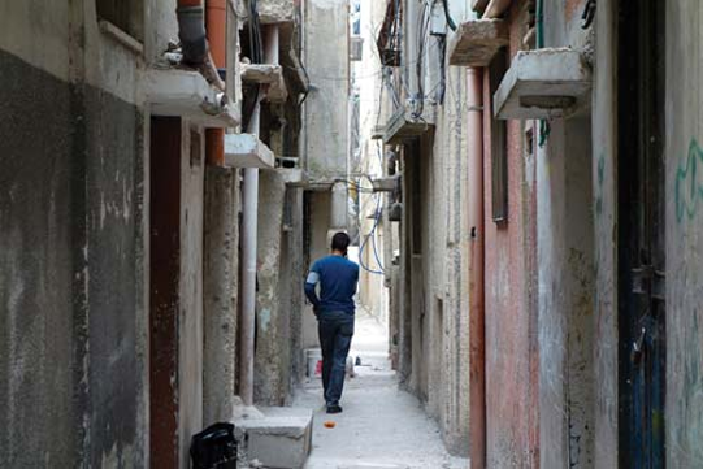Travel Reference
In-Depth Information
The claustrophobic Balata Refugee Camp is home to more than 20,000 Palestinians.
Walking through the Balata camp, I made a point to remember that throughout the
world, there are refugee camps filled with people living this way. When we travel, we
draw a tiny line of experience across our globe. But what we experience hints at a much
broader reality; even though we see very little, we can learn a lot. From one country to the
next, a gated community is a gated community. A happy person with clean running water
is a happy person. And a refugee camp—regardless of who lives there and why—is filled
with destitution, frustration, and faint but distant hope.
Wandering the streets of Balata offered a vivid glimpse of life here. Mothers send
their sons out for chicken, and they bring home a very fresh bird ready to cook. The boy
selects a bird from the cage. The butcher slits its throat, drains it, and tosses the bird into
a spinner to remove all its feathers. Then he guts it, washes it, and puts it in a plastic bag.
The cost: about $4 a bird. Palestinians call the spinner a
ma a'ta
—the same word they use
for the turnstile they have to go through at various security checkpoints.

